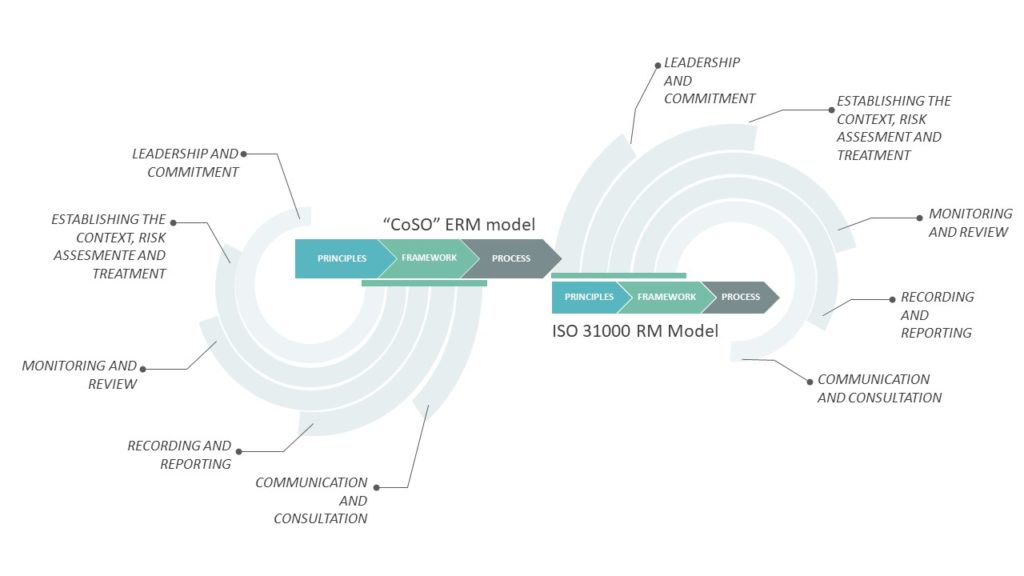 The recognition of the importance of guaranteeing value to the company’s stakeholders for long-term sustainability has finally placed the objectives of its stakeholders at the center of the organizational model. This has led to a new interpretation of the concept of risk, generating innovative management models of the business environment that converge in the ERM discipline.
The recognition of the importance of guaranteeing value to the company’s stakeholders for long-term sustainability has finally placed the objectives of its stakeholders at the center of the organizational model. This has led to a new interpretation of the concept of risk, generating innovative management models of the business environment that converge in the ERM discipline.
In many cases, even risk management strategies, apparently effective if applied to the individual risk, do not prove to be such when operated in contexts of interacting risks. Moreover, a focus on specific business activities does not allow taking advantage of possible interactions between different types of risk, so a holistic approach to risk becomes essential. Only jointly considering the risky events relating to each business scope allows to define correctly the enterprise “risk portfolio” and, thereafter, to evaluate the measures suitable for the management of uncertainty in order to protect the overall corporate value.
In this light, risk management becomes a substantial aspect of enterprise governance and must be dealt with at the highest decision level. The Enterprise Risk Management (ERM) is the main discipline that allows top management to maintain control over the global aspects of business risk and consistently shape corporate strategies.
ERM discipline focuses on all areas of business risk, indemnity, operations, and strategy. It points at a dynamic toolkit of advanced risk management skills and approaches that can be applied to enhance value at both the enterprise and silo risk management levels – risk appetite, risk capacity, value at risk, risk profile, Total Cost of Risk (TCoR), Real Option (RO), etc. Furthermore, ERM discipline targets the development of the communication skills required to inform and inspire the successful implementation and adoption of ERM strategies.
The next article will be dedicated to the relationship between ERM and digital transformation.
This series of articles is the fruit of collaboration between Antonella Lanati, Valore Qualità, e Alberto Bettanti, professor of management engineering at Università degli Studi di Genova and Pavia, and owner of Proxima, an independent management consulting company.



